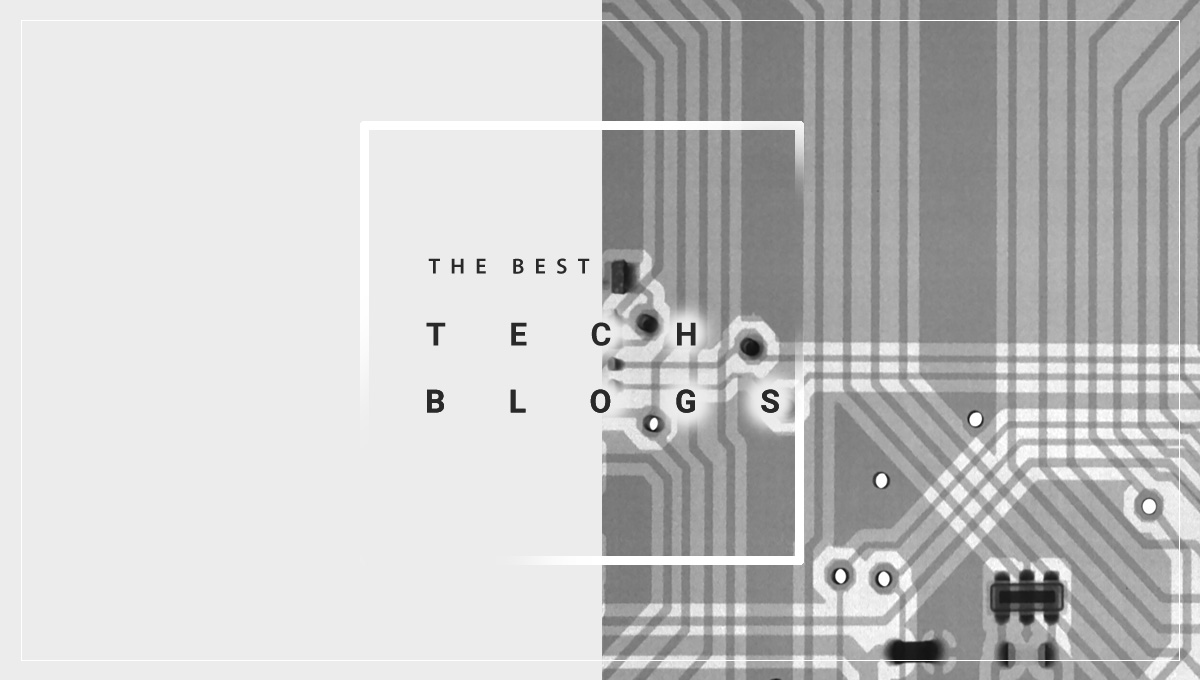Leading Factors to Follow the Best tech blog for Tech News and Tutorials
Leading Factors to Follow the Best tech blog for Tech News and Tutorials
Blog Article
Exactly How Blockchain Modern Technology Is Revolutionizing Information Security
Blockchain modern technology is fundamentally altering the landscape of data safety by introducing a decentralized structure that guarantees boosted transparency and durability. Unlike traditional systems, which count on centralized data databases, blockchain distributes information across a network, reducing vulnerabilities and solitary points of failure. The usage of innovative cryptographic methods makes sure that information stays tamper-proof, fostering trust fund among customers and stakeholders.
The Fundamentals of Blockchain
Blockchain modern technology, an advanced idea in digital information management, basically changes exactly how details is stored and protected. At its core, a blockchain is a distributed ledger that videotapes transactions across a network of computers, ensuring openness and immutability.
Secret to recognizing blockchain is the hashing procedure, which encrypts deal data right into a distinct alphanumeric code. This cryptographic function makes sure that any change in the deal data leads to an entirely various hash, consequently securing against tampering. The consensus mechanism, another vital component, validates and confirms new transactions through a network of nodes, consequently removing the demand for a central authority.
Additionally, blockchain's append-only framework guarantees that information, as soon as added, can not be removed or altered. This characteristic guarantees a verifiable and irreversible record of transactions, promoting depend on among individuals. Consequently, blockchain offers a robust structure for information stability, offering industries a trusted method for monitoring and managing digital information in a secure, transparent fashion.
Decentralization and Protection
Decentralization, a core concept of blockchain innovation, significantly boosts data safety by dispersing control across a network as opposed to depending on a single, centralized entity. This circulation mitigates the risk of single factors of failing, which prevail in traditional central systems. By dispersing data across countless nodes, blockchain ensures that also if one node is jeopardized, the whole network remains safe. This redundancy not only strengthens the honesty of the information but also boosts its durability to cyberattacks and system failures.

Each participant in the network has access to the whole blockchain, enabling them to verify and examine deals separately. In general, decentralization is important in enhancing information security in blockchain networks.

Cryptographic Strategies
At the heart of blockchain technology, cryptographic strategies play a crucial role in guarding information, ensuring both privacy and stability. These techniques are foundational to the blockchain's capability to securely tape-record deals in a decentralized fashion. Cryptography in blockchain uses a combination of uneven and symmetrical algorithms to secure information, making it accessible only to licensed celebrations - Best tech blog. Public and private crucial pairs are central to this process, enabling safe and secure verification and identification verification without disclosing delicate information.
Hash functions are one more vital part, changing input data into a fixed-size string of characters, effectively developing an unique electronic fingerprint for each and every block. This ensures that any effort to alter the information will result in a totally various hash, thus preserving the immutability of the blockchain. In addition, digital trademarks verify the authenticity and integrity of transactions, offering a layer of non-repudiation.
The decentralized nature of blockchain, integrated with durable cryptographic techniques, gets rid of the demand for middlemans, reducing possible susceptabilities. As blockchain innovation develops, advancements in cryptography such as zero-knowledge evidence and homomorphic security proceed to improve safety and security steps, additionally strengthening data defense in this advanced electronic ledger system.
Use Cases Throughout Industries

In the healthcare market, blockchain ensures the safe and secure storage space and sharing of client records, advertising interoperability while guarding delicate information from unauthorized gain access to. This technology encourages people with control over their case history and assists in smooth sychronisation amongst healthcare suppliers.
Supply chain management advantages substantially from blockchain's immutable journal, which ensures traceability and credibility of items from beginning to customer. By enhancing transparency, blockchain helps reduce issues such as counterfeiting and dishonest sourcing.
In addition, blockchain's decentralized nature is improving the energy market by enabling peer-to-peer energy trading, where customers can get and market excess renewable power directly. This promotes a much more reliable and sustainable energy environment.
In the realm of intellectual property, blockchain offers a tamper-proof platform for makers to register and safeguard their works, making certain rightful acknowledgment and fair settlement. These varied use situations underline blockchain's role as a crucial force in redefining information security across markets.
Future of Data Defense
As we seek to the future of information protection, blockchain innovation is positioned to play a critical duty in securing electronic info. With its decentralized and unalterable characteristics, blockchain offers a robust structure for safeguarding delicate data versus unauthorized accessibility and cyber threats. This technology ensures that as soon as data is videotaped, it is almost difficult to alter without discovery, hence have a peek here providing a significant advantage over standard data storage space approaches.
The integration of blockchain with other sophisticated technologies, such as man-made knowledge and the Net of Points (IoT), is expected to improve data protection strategies additionally. By leveraging clever contracts, companies can automate and enforce security procedures, reducing human error and boosting efficiency. Furthermore, blockchain's capacity to offer deducible and clear deals will certainly boost count on and liability in data monitoring methods.
As governing landscapes develop, blockchain's compliance-friendly nature will come to be increasingly appropriate. It can aid organizations meet rigorous information security regulations, such as the General Information Defense Guideline (GDPR) and the California Consumer Personal Privacy Act (CCPA), by giving verifiable documents of data handling tasks. Eventually, blockchain's unique features placement it as a transformative tool in the recurring pursuit to secure the electronic globe versus ever-evolving cyber hazards.
Verdict
Blockchain innovation stands for a standard change in data security by leveraging decentralization and cryptographic strategies to boost openness, depend on, and data integrity. As cyber dangers develop, blockchain emerges as a crucial tool for durable data defense throughout various industries.
Blockchain modern technology is essentially altering the landscape of data safety and security by introducing a decentralized structure that assures boosted transparency and strength. Unlike typical systems, which count on centralized information repositories, blockchain distributes information across a network, decreasing susceptabilities and single points of failing.Decentralization, a core principle of blockchain technology, dramatically enhances data safety and security by dispersing control across a network instead than depending on a particular, central entity.At the heart of blockchain technology, cryptographic strategies play a critical function in safeguarding information, ensuring both discretion and integrity.Blockchain innovation stands for a standard Extra resources change in information safety by leveraging decentralization and cryptographic techniques to boost openness, trust fund, and data integrity.
Report this page